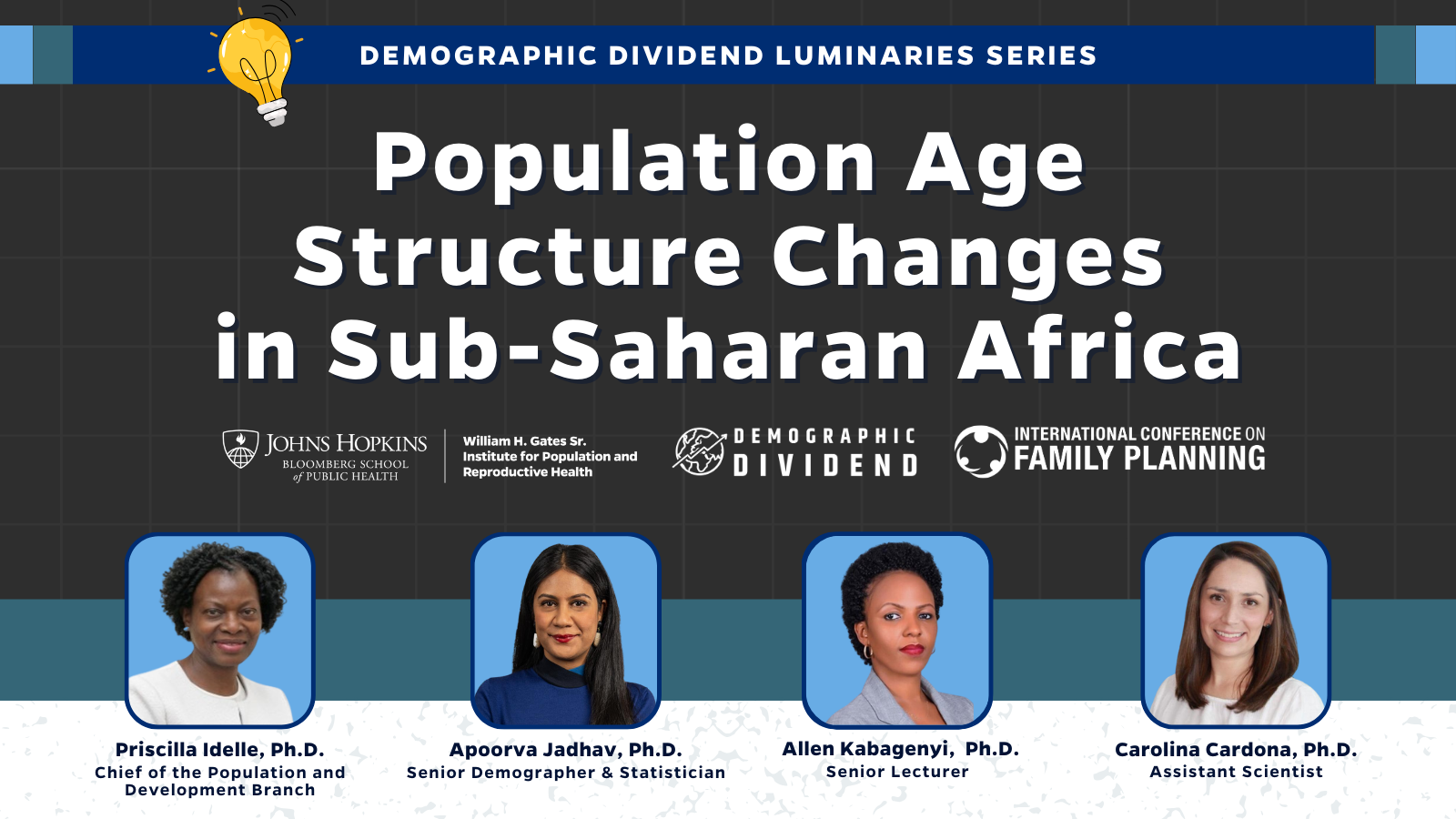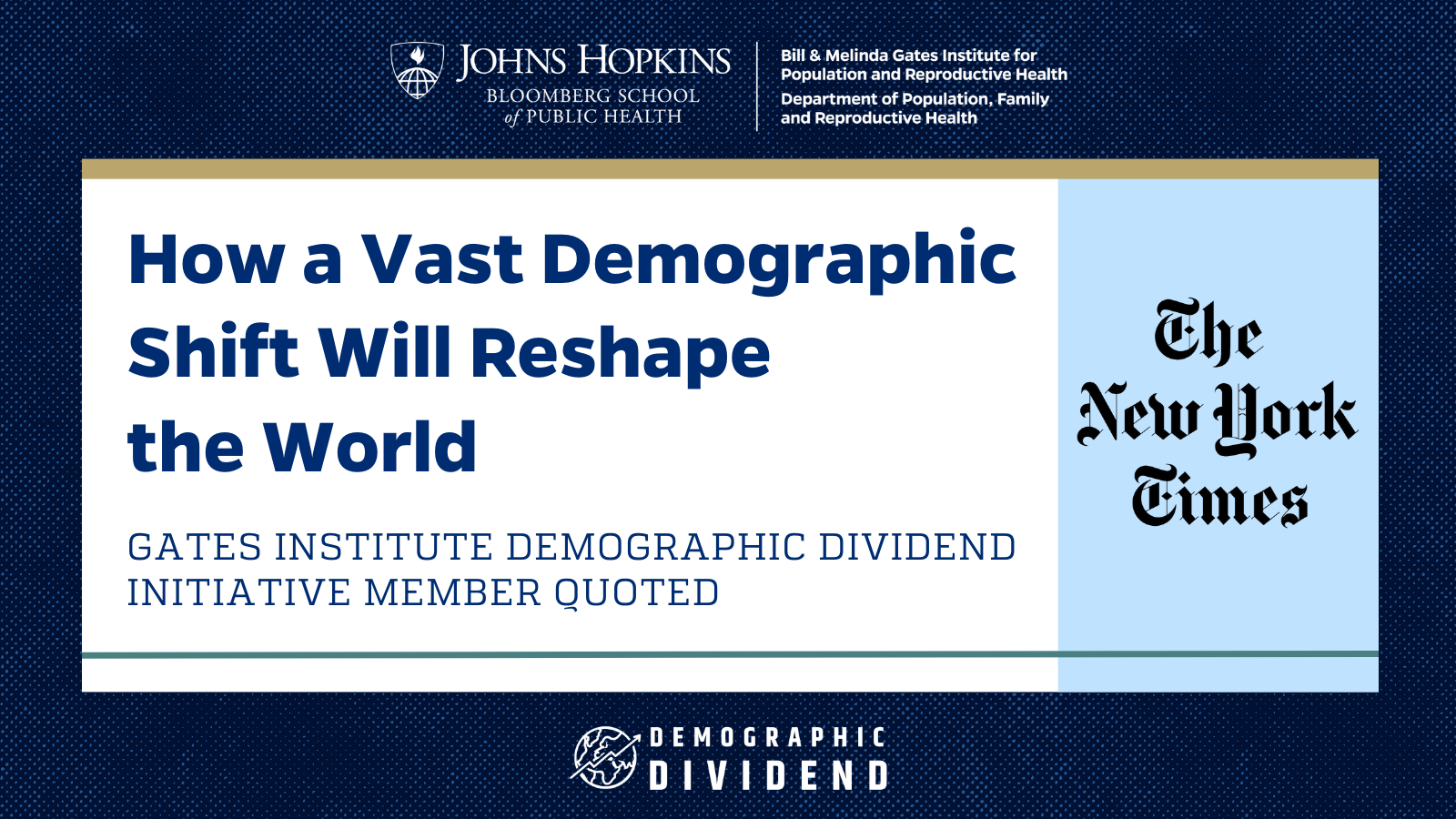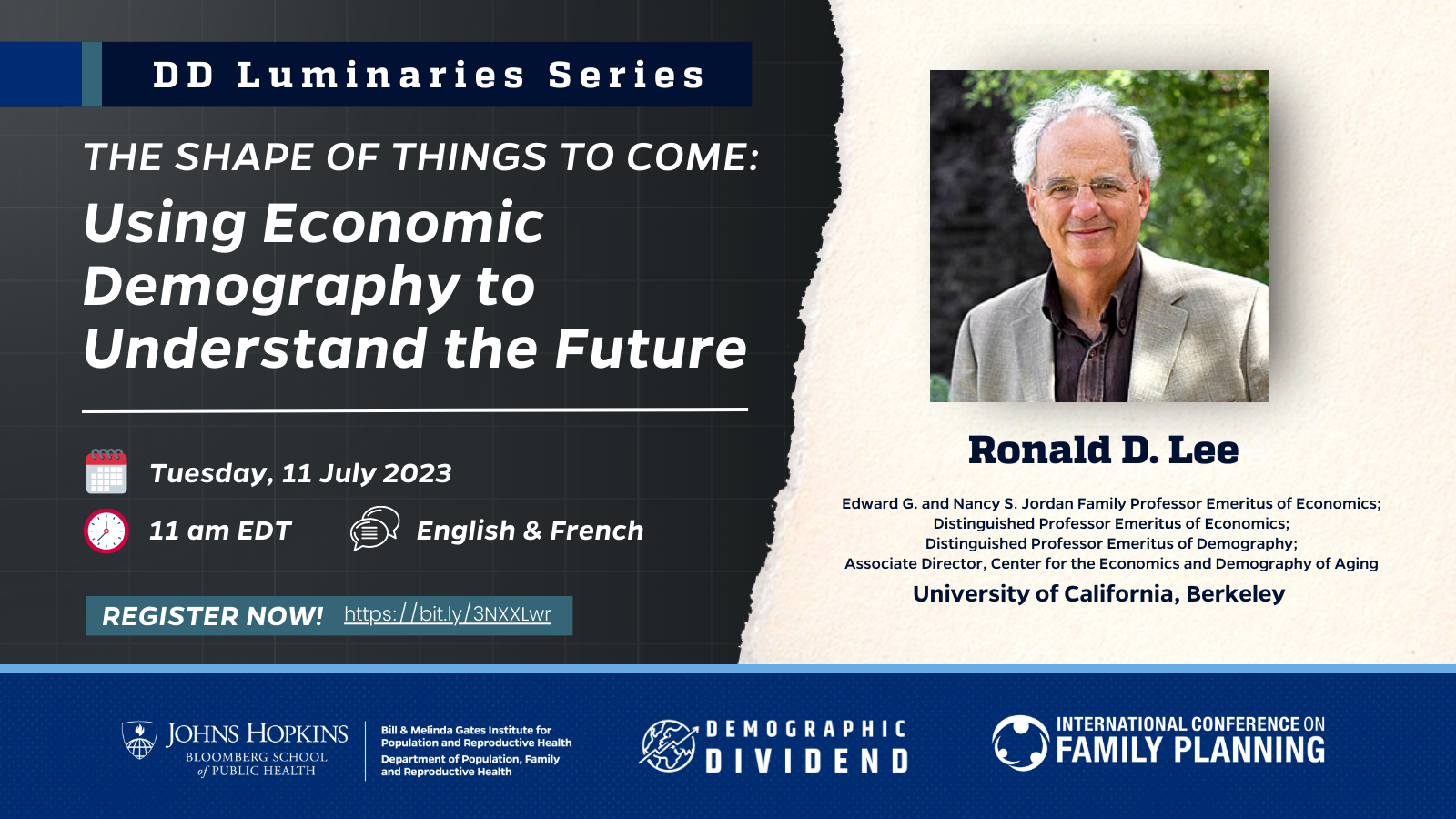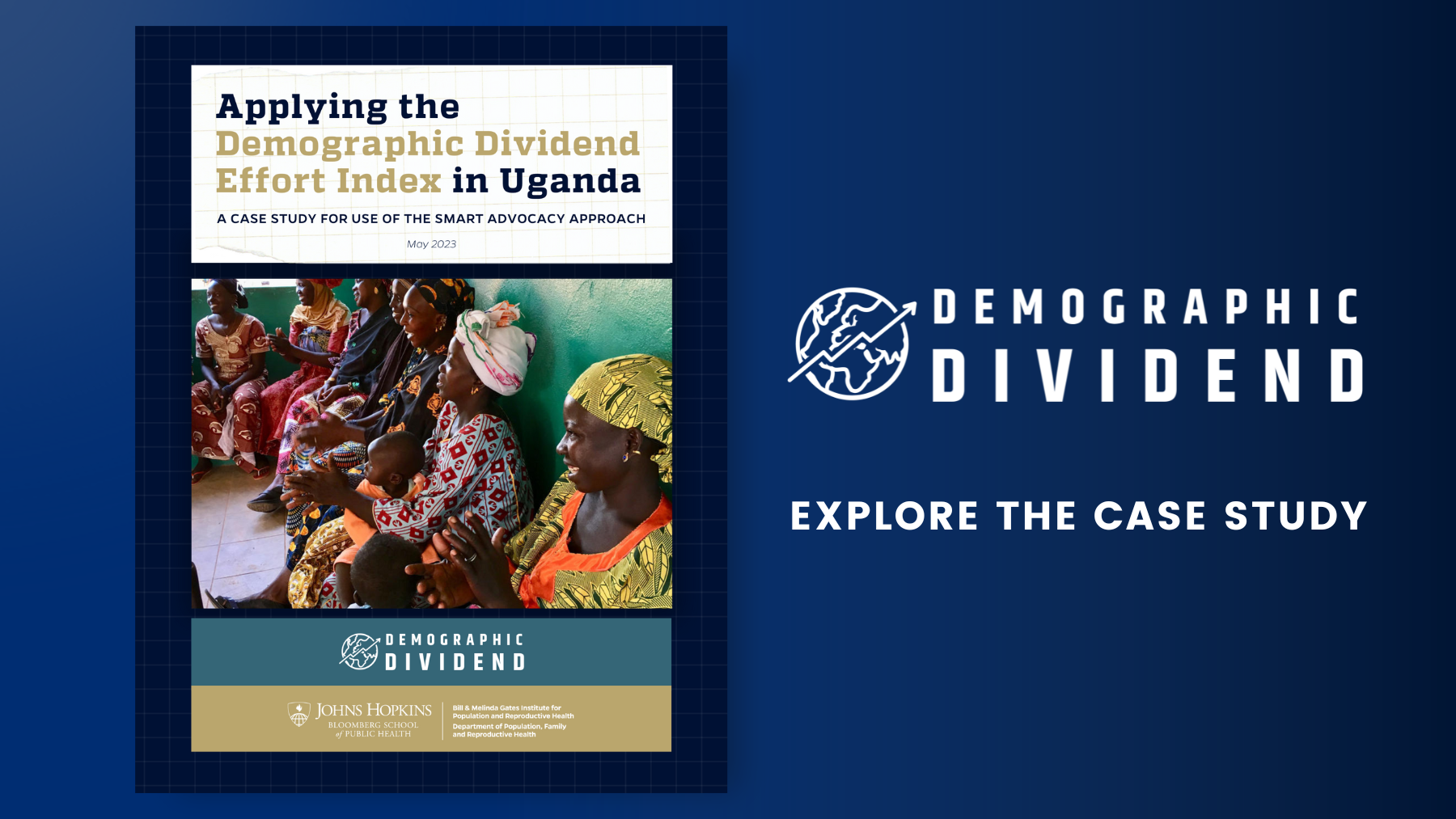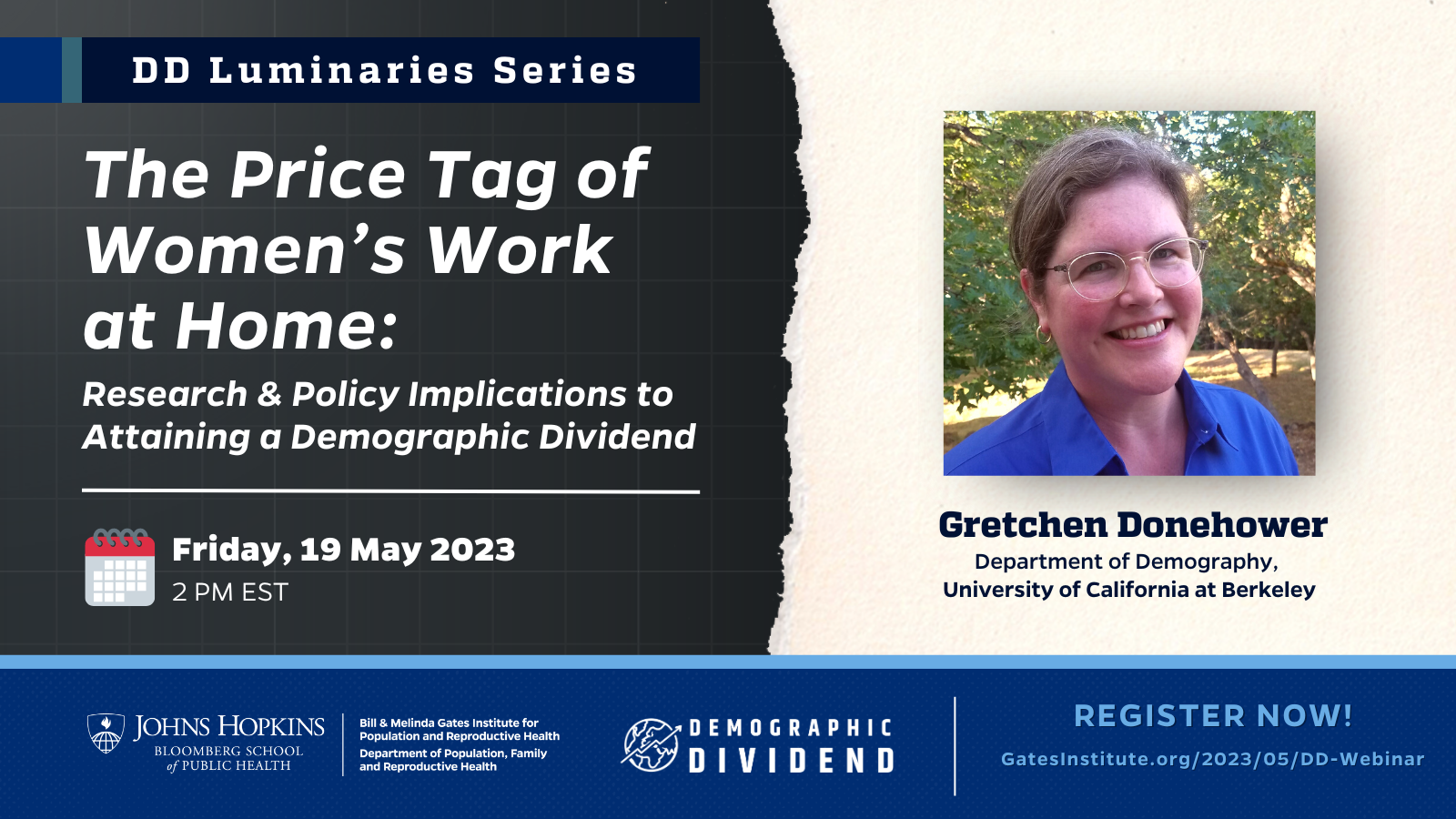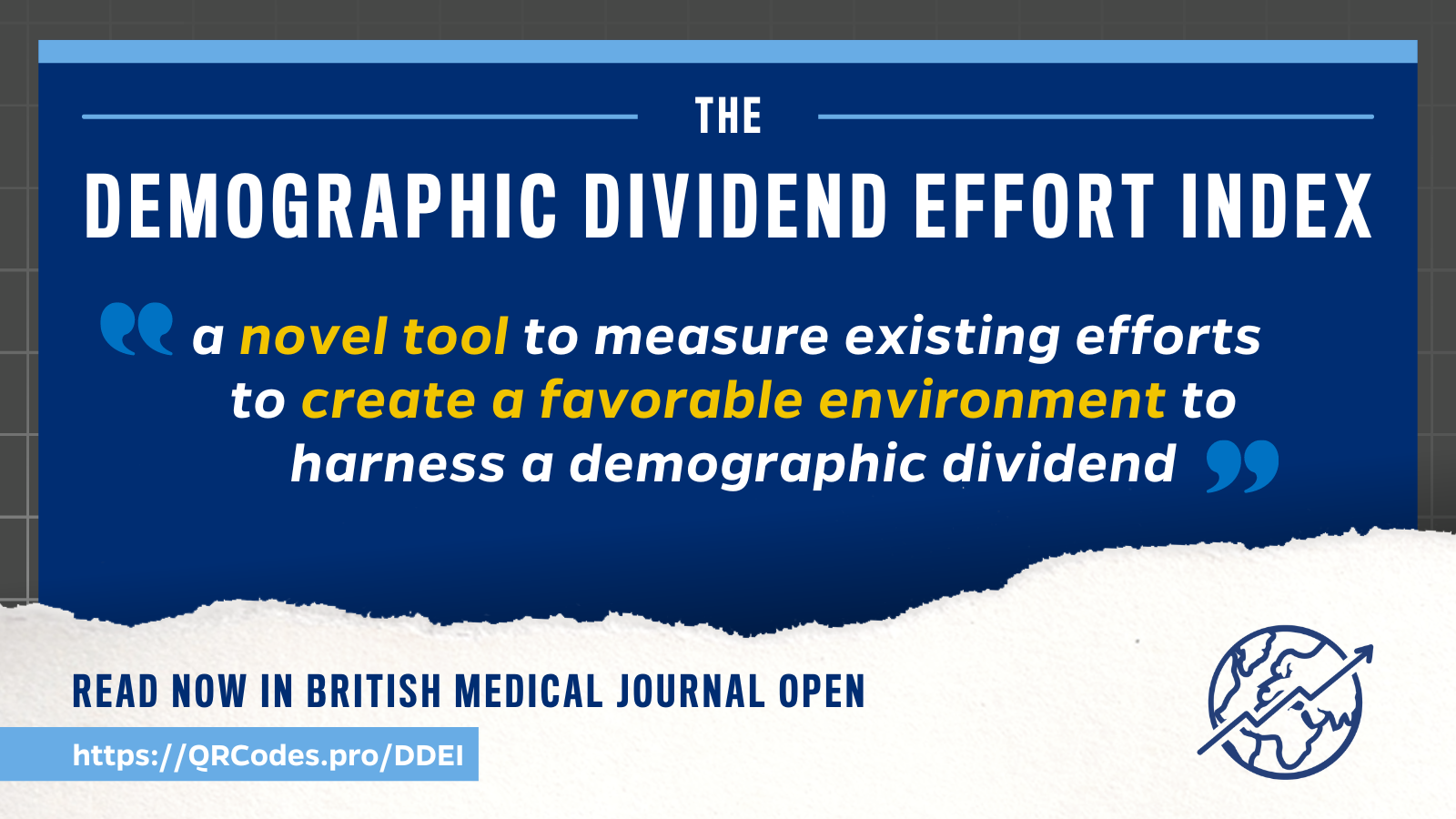“Returns on investment in family planning and the demographic dividend” was a dedicated track within the scientific program, and received a record number of submissions over the 2016 ICFP.
The Gates Institute and its partners organized several activities specific to DD at the ICFP, including the DD Pre-conference, the high-level ministerial meeting and lunch table discussions.
Demographic Dividend Pre-conference
The DD Pre-conference was jointly sponsored by Gates Institute (GI), Population Reference Bureau (PRB) and the Ministry of Health of the Republic of Rwanda. The organizers were expecting 70 participants, but because of very high demand and interest, 120 practitioners, policymakers, and advocates attended.
The DD Pre-conference created a platform to share best practices in policy implementation, new tools for measuring progress on the DD andinnovative advocacy approaches to increase support for voluntary family planning among decision-makers across sectors, thereby empowering participants to support achievement of the DD in their home countries.
Introduced by Benoit Kalasa, Director of UNFPA’s Technical Division, the Honorable Dr. Uzziel Ndagijimana, Minister of Finance and Economic Planning of the Republic of Rwanda, officially opened the Pre-conference.
The UNFPA and the African Union Commission co-organized the session that focused on sharing “Innovative Experiences in Key Pillars of the Demographic Dividend.” This session highlighted best practices to promote human capital development, enhancing accountable governance, leveraging the private sector and investing in youth.
Supriya Madhavan (World Bank) led the session “Recent Tools for Modeling, Measuring, and Monitoring the Demographic Dividend,” highlighting the Linkage Model (World Bank), FP-SDGs Model (Palladium/HP+ Project), Demographic Dividend Atlas (UNFPA), Subnational Estimation Index (UNFPA) and Demographic Dividend Scorecard (Gates Institute).
Organized by PRB and moderated by the by Ellen Starbird, Director of USAID’s Office of Population and Reproductive Health, the closing session focused on “DD Advocacy Across Sectors: Effective Messaging on the Demographic Dividend.” It featured different projects, namely the Four Dividends, presented by Elizabeth Leahy Madsen (PRB); Demographic Dividend Narrative Framework, presented by Eliya Zulu (African Institute for Development Policy); DemDiv, presented by Meshack Mollel (Pathfinder International, Tanzania); and Gender and the Demographic Dividend, presented by Jay Gribble (Palladium/HP+ Project).
Focusing on Women’s Empowerment at the High-level Ministerial Meeting
Government officials and representatives of major foundations and bilateral and multilateral donors, as well as additional attendees from the DD Pre-conference, attended the High-level Ministerial Meeting. Among all 86 participants were 12 ministerial-level participants, including Hon. Professor Nicolas Meda, the Minister of Health of Burkina Faso; Hon. Ernesto Pernia, Secretary of Socioeconomic Planning of the Philippines; Marie Claude Bibeau, Minister of International Development of Canada; 28 parliamentarians from 19 different countries, including a delegation from the Rwanda parliament; and a large number of high-level staff from foundations including the Bill & Melinda Gates Foundation; multilateral organizations such World Bank, WHO, UNFPA; and bilateral organizations such as USAID. The meeting was co-organized by the Gates Institute, PRB and UNFPA.
The first session, focusing on “Integrating the DD in Country Development Frameworks,” was chaired by Annette Dixon, Vice President of the World Bank Group. The second session, focusing on “Investing in Women and Girls to Galvanize the Health DD,” was chaired by Julia Bunting, President of Population Council.
The key takeaways from the meeting:
Africa is still missing out on 1.8% of growth because of deficiencies in human development, and it does not yet benefit from a demographic dividend. One of the clearest trends in data is that countries with the highest levels of fertility have some of the lowest Human Capital Index rates. Countries on the bottom of the Human Capital Index would best get out of it through empowering women via access to family planning choices, education and economic opportunity. For instance, if Nigeria reduces its fertility rate from 5.5 to 4.5 by investing in women and girls, it could contribute 28% growth to its GDP in the next 32 years, which could lift about 53 million people out of poverty.
Development partners in different countries should work with the governments of these countries to strengthen and align their education systems so that the focus is on ensuring that ALL children learn. Education is fundamental to building the human capital that allows people and countries to thrive. In addition, these interventions should be taken together with reducing fertility, hence allowing countries to benefit from the demographic dividend and allowing them to increase their GDP per capita, which comes from having a young, growing skilled labor force. Although it is crucial to recognize that investing in the early years of life, girls’ education, social protection and family planning are all integral to building human capital and accelerating economic growth, women’s empowerment remains an irreplaceable starting point to up the Human Capital Index and accelerate the journey to reaping the benefits of the demographic dividend.
Measuring Impact, Maximizing Returns: The DD Track within the ICFP Scientific Program
At the ICFP, the demographic dividend track tackled complex aspects of realizing various returns on investment in family planning and taking advantage of the demographic dividend potential. The 2018 ICFP received 102 individual abstracts submissions and 4 preformed panels for this track. This is a remarkable increase from the 2016 ICFP, which saw only 19 submissions for the equivalent track.
Below are the selected sessions that were part of this track in the scientific program:
- Maximizing returns on family planning through cross-sector approaches to family planning, environment and development integration in Africa
- Measuring a lifetime of returns: family planning, demographic dividend, and sustainable development goals
- Speed round on applying demographic dividend models for policy advocacy
- Measuring impacts: family planning, unintended pregnancy, youth and child marriage
- Country approaches to making the investment case for family planning
- Assessing the cost and benefit of different family planning service delivery approaches
- Equitable access, sustainable investments, and development benefits: investing in family planning for a lifetime of returns

